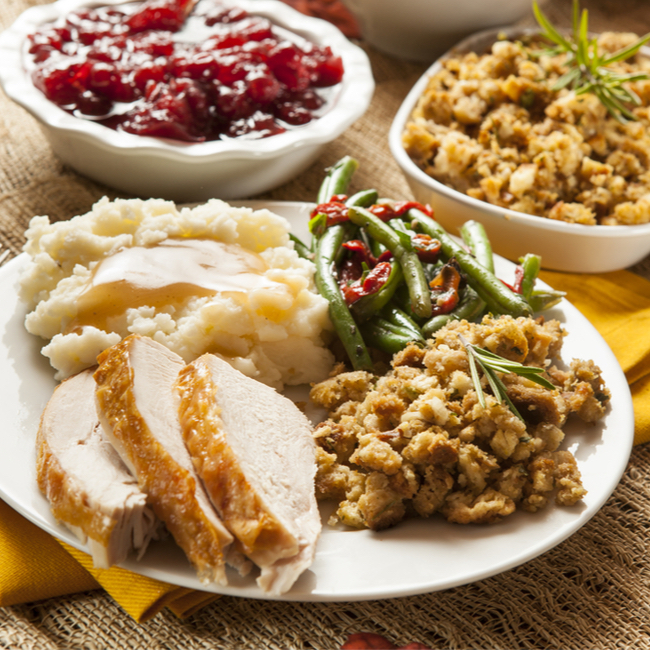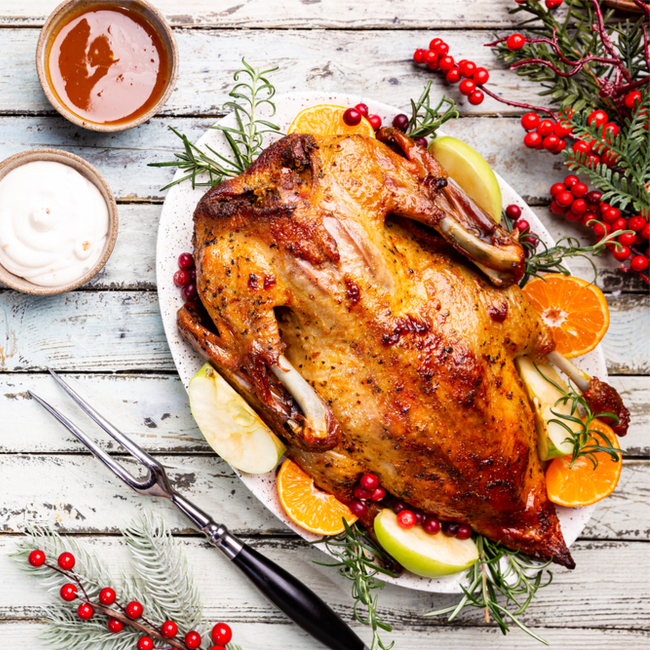
Immediately following your meal you may find yourself wishing that you’d eaten less, but Best notes that especially with days heavily focused on eating, it’s important to let yourself off the hook and not focus too much on the implications of overeating. “The first thing you can and should do after overeating is to relax and give yourself some grace. By getting tense and upset with yourself you are negatively impacting digestion due to stress. This can lead to indigestion and more discomfort,” she explains.
If you’re worried about the impact that the meal you just consumed will have on your diet, rest assured that eating an abundance of calories on one day will hardly “ruin” the progress of your weight loss efforts so long as you don’t continue to make it a habit.
Once you’ve gotten over the mental hurdle of overindulging, Best notes that there are actually several things you can do to make yourself feel better, and none of them include starving yourself the next day. “Two active things you can do are walk and hydrate. Walking helps to get the digestive system going and lower blood sugar. As digestion ramps up and glucose drops you'll feel less stuffed and have more energy,” she suggests.
Although heavy exercise would likely make you feel much worse without the proper time to digest, a light walk is a great way to get things moving, using the food you consumed as fuel rather than having it simply sit in your stomach.
When you’re full, the last thing you may want is to put anything else in your stomach, but drinking plenty of water will help to negate the lethargic feeling that overeating can bring about. “Hydrating, through small sips of water, can get the excess sodium and inflammation out of your body, which can improve comfort and digestion as well,” says Best. “Taking a probiotic is another great option, as they will aid in the digestion process potentially lowering side effects like heartburn and indigestion.”
At the end of the day, while overeating is often unpleasant after the fact, it will have no real bearing on your body in the days to follow, so allowing yourself the grace to enjoy your Thanksgiving meal without worrying about its implications on your diet is the healthiest option for your mental and physical health.
Going for a brisk walk and staying hydrated after you eat can help to alleviate some of the discomfort as the excess of food moves through your system, but ultimately listening to your body and resting after the meal will allow you to recover more quickly. This is not to say you should knowingly push your stomach to its maximum limit, but enjoying a hefty meal one day a year will make no real impact on your health moving forward.


